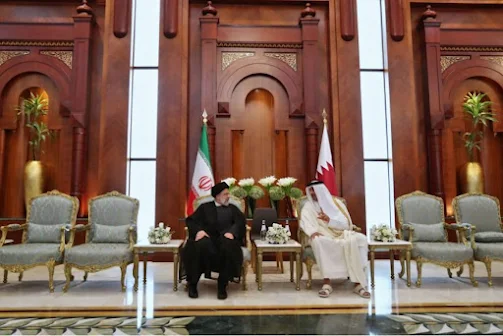
German Central Bank: Boycotting Russian gas will cost the country 180 billion euros
The German Central Bank has indicated that the sudden interruption in supplies to the European Union could reduce economic output by 5 percent this year, according to the British Financial Times.
The central bank has warned that the immediate ban the European Union is considering imposing ban on Russian gas imports will cost Germany 180 billion euros this year.
And the bank added, in its monthly bulletin, yesterday, that this ban will affect the gross domestic product by 5% in 2022, which will lead to higher energy prices, in addition to one of the deepest recessions that the country has experienced in recent decades, according to the British newspaper.
Thus, the central bank's estimates are much more negative than those of academic economists, and it is likely to bring to the fore the fierce debates about the readiness of the economic power of the eurozone in the face of the absence of Russian gas.
This comes at a time when the Ukrainian government, along with European politicians and academics, considers that sales of gas, oil and coal to the West contribute to the stability of the Russian economy, and help "finance the war of President Vladimir Putin." The European Union will ban imports of Russian coal from August, while gas shipments are set to continue.
Last month, a group of nine university economists deemed the fallout of the entire energy ban "manageable," noting that it would affect Germany's gross domestic product by only 0.3 to 3 percent.
However, industry officials warned that the impact would be more severe. In this context, BASF CEO Martin Brudermüller noted that a sudden halt to Russian gas deliveries could destroy "the entire German economy" and could lead to the worst economic crisis since 1945.
For their part, politicians rejected allegations that the economic repercussions of the embargo would be “minor.” German Chancellor Olaf Scholz described these estimates as “wrong” and “irresponsible,” while Economy Minister Robert Habeck considered that Germany would permanently dispense with Russian gas by 2024.
During the meetings of the International Monetary Fund and the World Bank in Washington yesterday, US Treasury Secretary Janet Yellen called on the European Union to “be careful” about banning Russian energy imports, warning of the damage such a move could cause to the global economy.
The Bundesbank, which considered its estimates still highly questionable, estimated that industrial consumers could not replace Russian gas with alternative energy sources for three consecutive quarters. As a result, inflation, which reached 7.3 percent, will rise by 1.5 percent this year, exacerbating the risk of inflation, given the association of strong price pressures with weak growth, according to the newspaper.
























































